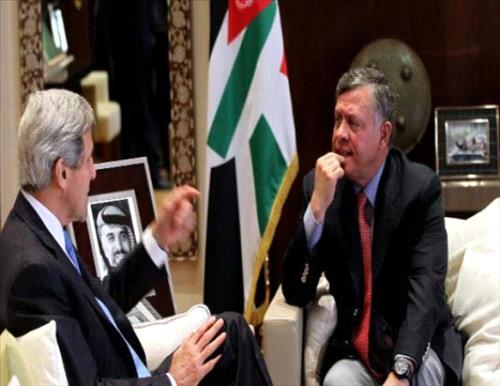Ammon News - AMMONNEWS - Jordan recently became one of the 10 nonpermanent members of the United Nations Security Council, a position that will put the international spotlight on the Hashemite kingdom. Its Israeli and Palestinian neighbors continue to grab headlines over their bitter, stalemated negotiations, while violence and uncertainty are the order of the day in nearby Egypt, Syria and Iraq. In contrast, Jordan may seem a welcome oasis of tranquillity to the casual observer. But problems are building there on many fronts.
Long a friend of the West and the conservative monarchies of the Middle East, Jordan's continuing failure to democratize its politics, reform its economy and properly plan for the thousands of refugees that daily cross its borders have led to increasing tensions in the country.
Jordan has a population of more than 6 million, contains few natural resources and is overly reliant on aid and loans from rich neighbors in the Arab Gulf and long-standing allies in the West. Following its loss of the West Bank during the 1967 war with Israel, Jordan has slowly abandoned its longtime claims of sovereignty over it. It has remained largely neutral in regional politics, though it allied strategically with Saddam Hussein's Iraq on more than one occasion and cultivated increasingly friendly ties with President Bashar Assad's regime before the outbreak of conflict in Syria in 2011.
But a combination of history, geography and geopolitics has given Jordan pride of place as a strategic ally of the United States in a tumultuous region.
Since his elevation to the throne after his father's death in 1999, King Abdullah II, equipped with disarming charm and British-accented English, has been selling his democratization efforts domestically and abroad. His visits to media outlets in the U.S., such as Jon Stewart's "The Daily Show," display his dexterity in flattering foreign audiences. He talks of Jordan as a bastion of careful democratization, always ahead of its monarchical counterparts in promoting gradual reform and political stability and limiting Islamic extremism. He is the face of Western-like moderation in a region of bearded terrorists and fundamentalists seemingly filled with rage and hatred toward the values and places the West holds dear.
Although Western audiences often regard Abdullah and his equally charismatic late father as exemplars of moderation and rationality in a sea of religious extremism, weekly protests today that Jordanians are growing weary of the palace's hollow democracy talk. Frustrated and discouraged by the ever-shifting Cabinets that rarely deliver on their promises, reform-hungry Jordanians increasingly view the pandering monarch with a skeptical eye. And the global financial crisis, waves of refugees from neighboring Iraq and Syria and failed economic reforms have hit the country hard. Food prices have skyrocketed, economic growth has been halved and unemployment stands officially at 12%, and unofficially hovers around 30%.
So far, public outrage has been limited to weekly Friday protests in cities such as Amman, Maan and Karak. The participants are independent activists and opposition groups linked to Islamic political parties and leftist organizations who join together to remonstrate against the rising prices of basic goods, plodding political reform and the government's negligible economic policies.
But the disastrous revolutionary examples in Syria and Egypt, coupled with the continuing influx of refugees, have left the country in a tense stalemate. What seemed like the inevitable march of the Arab Spring three years ago is now a cause for pause and deliberation among local activists, and a nationwide protest movement is unlikely.
And for the moment, the government has managed rising resentment. Since the onset of the Arab Spring, it has deployed superficial political reforms, targeted repression and offered financial incentives (such as government jobs and welfare spending) to avoid popular discontent. But modifications to the constitution were promised and never carried out, peaceful protesters have been attacked on many occasions by "pro-regime" demonstrators, and the "press and publications" law has been amended to rein in dissent.
Jordan's ascent to the U.N. Security Council, as a result of Saudi Arabia's unprecedented rejection of its seat in October, may blind us to such realities. The hard truth is that external support based on the king's friendly foreign policy has long been central to authoritarian outcomes in the country. Since 2004, the United States has given the country an average of half a billion dollars annually in assistance.
Abdullah thus far has successfully persuaded many of his citizens to obey the dictates of living for God, king and country. But he and the coterie that surrounds him have little to offer those Jordanians who desire a greater voice in politics and different approaches to governance. To what degree the palace and its allies can continue to rule a fractious citizenry while appeasing external supporters is the crucial question that shapes short-term political dynamics in Jordan.
As the Security Council and the world turn their focus toward key negotiations concerning the war in Syria, the Iranian nuclear program and the Israeli-Palestinian conflict, we would be wise to remember the dilemmas facing its newest member. The persistence or deterioration of Jordanian stability will not only have inescapable repercussions for the country's citizenry but also for the geopolitics of a region that continues to confound American policymakers.
*los Angeles Times
